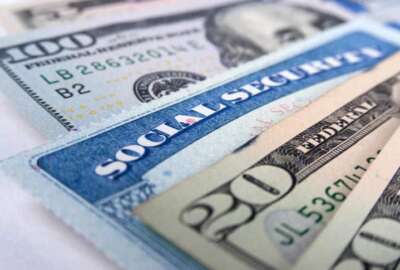
2019 pay raise on life support?
Federal workers got a 1.4 percent raise in January that was proposed and backed by the president. But the outlook for 2019 was and still is different.

Just a couple months ago the chances of a 2019 pay raise for white collar feds were slim to none. The White House, which backed the raise, said it wanted to reorganize federal agencies before the next pay increase.
It also said it wanted to set up a system with a cash pool to reward individual employees — in some cases handsomely — for outstanding service rather than giving everyone the same old, same old. As such, the Trump administration proposed freezing pay for feds in 2019.
By the same token the media was reporting that then-EPA Director Scott Pruitt had the most secure job in the federal government, and that he was planning a run for the presidency in 2024 after President Donald Trump hypothetically completes his second term. But experts notwithstanding, things in Washington can and do change course quickly. So will early obituaries about a 2019 pay raise have to be revised? Could be.
Federal workers got a 1.4 percent raise in January. That was proposed and backed by the president. With locality pay factored in (and depending on which locality) many workers received an average raise of 1.9 percent. In some places, like the Washington-Baltimore area, the raise was more like 2.2 percent. Not a bad increase in times of low-inflation, especially coupled with a with a 3 percent within-grade raise which most employees with satisfactory service get every one, two or three years.
But the outlook for 2019 was and still is different. There is the not insignificant matter of the 2018 midterm elections which are so up in the air that is possible the Republicans could lose control of the House and maybe even the Senate. The political question candidates must ask is what is the risk vs. gain of supporting a federal pay raise. Members of the federal family make up a substantial chunk of voters in many states and congressional districts. Would giving them a raise turn off voters who cheer at the thought of draining the federal swamp?
Congressional Democrats have proposed a 3 percent January 2019 raise. That’s a long shot but it has solid support from federal employee groups who are pushing for what they consider a modest raise in these strong economic times.
But there is hope. The Senate is poised to consider a bill this week that includes a 1.9 percent raise for feds next year. Action by Congress could prevent the president from freezing pay.
Last week on our Your Turn radio show, Jessica Klement of the National Active and Retired Federal Employees said she thought there was a good chance of a federal pay raise this year and that it will likely be decided later this year when House and Senate negotiators begin work on a compromise appropriations bill.
Nearly Useless Factoid
By Amelia Brust
The first transcontinental phone call was held between the device’s inventor, Alexander Graham Bell, and his former assistant Thomas Watson in 1915. Bell called from Dey Street in New York City to Grant Avenue in San Francisco. It took five telephone operators 23 minutes to manually connect the call.
Source: Wikipedia
Copyright © 2024 Federal News Network. All rights reserved. This website is not intended for users located within the European Economic Area.
Mike Causey is senior correspondent for Federal News Network and writes his daily Federal Report column on federal employees’ pay, benefits and retirement.
Follow @mcauseyWFED
Related Stories





